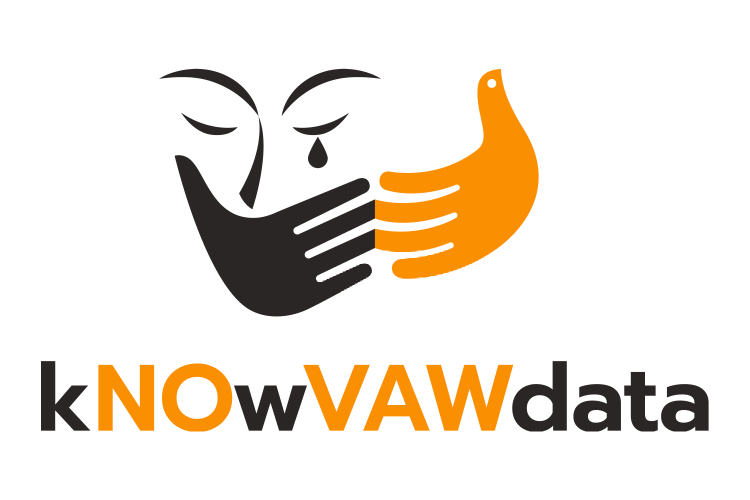Knowledge Hub

The Knowledge Hub provides links to resources supporting the measurement of violence against women and has been funded under the Pacific Spotlight Initiative. While starting with a primary focus on Pacific resources and global resources which are applicable for the Pacific region, the Knowledge Hub will continue under the UNFPA kNOwVAWdata initiative to support global knowledge exchange and a strong community of practice. The strength of this Knowledge Hub is the opportunity to share resources and support all regions of the globe.
If you would like to share links to be added to the Knowledge Hub, please send them to knowvaw-program@unimelb.edu.au.
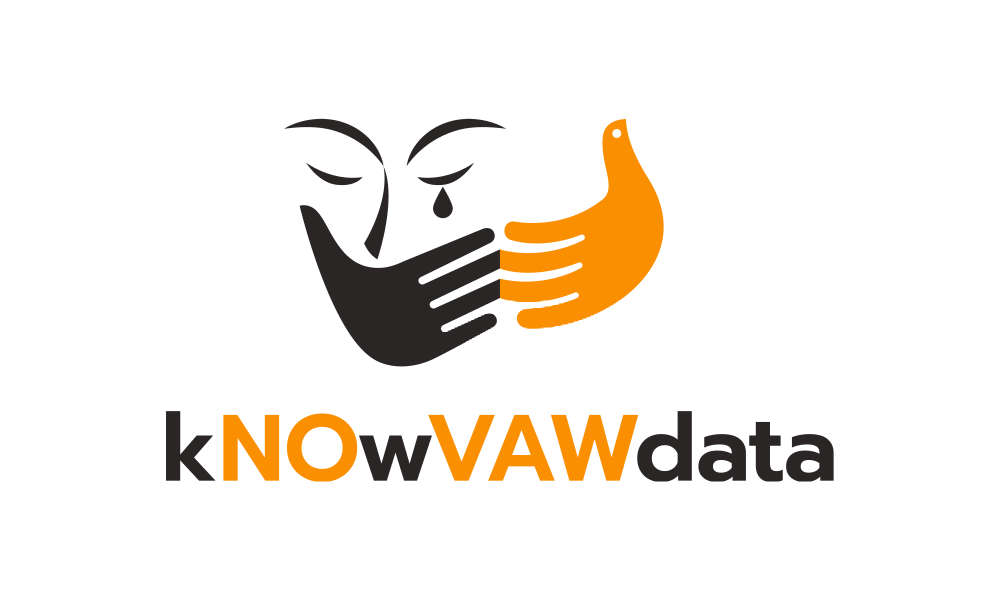
Annual Impact Report 2023 from Women’s Aid
Every year the Women’s Aid Annual Impact Report serves as a harrowing and poignant reminder of the level of domestic violence and abuse against women and children that prevails in homes and relationships across Ireland. Unfortunately, 2023 was no different. This report provides an insight into the coercive and controlling emotional, physical, economic, and sexual abuses inflicted upon women and their children at the hands of current and former intimate partners, whom we supported during just...

New Survey Methodologies in Researching Violence Against Women
This paper assesses the methodologies of the new national surveys of violence against women, including those in the US, Canada, Australia, Finland and the Netherlands, as well as the British Crime Survey. The development of large‐scale quantitative survey methodology so as to be suitable for such a sensitive subject has involved many innovations. The paper concludes with recommendations for further improvements including: the sampling frame, the scaling of both sexual assaults and range of...

Developing a measure of controlling or coercive behaviour
Initial research into new questions aimed at identifying controlling or coercive behaviour. These crimes are less likely to be reported to the police, therefore it is important we find an effective way to measure these offences. This will provide insight for policymakers, service providers and charities.

The Measurement of Domestic Abuse – Redeveloping the Crime Survey for England and Wales
The Crime Survey for England and Wales (CSEW) is a representative population survey that since the early 2000s has provided ongoing measurement of domestic abuse via a dedicated domestic abuse module, with regular publication of headline prevalence and other descriptive data. At the same time the measurement of domestic violence in the CSEW has also been the subject of ongoing debate and critique, in particular whether it is appropriate to use catch-all prevalence measures in the context of...

Innovative Approaches to Gender-Based Violence Service Provision in Emergencies
Even in the most challenging settings, UNICEF delivers innovative solutions to strengthen availability, accessibility and quality of GBV response services. With the COVID-19 pandemic, UNICEF had to capitalize further on its innovations in order to reach women and girls and help them to seek for help despite the lockdowns and quarantine restrictions enacted by Governments to respond to the pandemic.

Learning From Practice: Adolescent-focused Approaches to Prevent Violence Against Women and Girls
This synthesis review aims to draw out some cross-cutting best practices, challenges and lessons from 10 diverse interventions to prevent violence against adolescent girls across various settings. These interventions, each centred on a different form of violence against girls, were funded by the UN Trust Fund to End Violence against Women (UN Trust Fund). The interventions focused solely on adolescents (both boys and girls) or an adolescent-focused programme was a subcomponent of a wider...

UNICEF Communities Care Programme: Somalia Impact Evaluation
The United Nations Children’s Fund (UNICEF) Communities Care: Transforming Lives and Preventing Violence programme is a community-based model for preventing and responding to sexual violence against girls and women in conflict-affected settings. The programme is premised on the idea that while armed conflict causes horrendous suffering for those affected, the disruption it causes may also present an opportunity for positive change in social norms that can contribute to gender equality and...

UNICEF Communities Care Programme: South Sudan Impact Evaluation
The United Nations Children’s Fund (UNICEF) Communities Care: Transforming Lives and Preventing Violence programme is a community-based model for preventing and responding to sexual violence against girls and women in conflict-affected settings. The programme is premised on the idea that while armed conflict causes horrendous suffering for those affected, the disruption it causes may also present an opportunity for positive change in social norms that can contribute to gender equality and...

Background paper: A synthesis of evidence on the collection and use of administrative data on violence against women
This background paper was developed to synthesize evidence, including divergent expert opinions, on the collection and use of VAW administrative data. It was used as the technical document for an Expert Group Meeting (EGM) on Administrative Data on Violence Against Women convened in September 2019 by UN Women. The background paper and the discussions and recommendations coming out of the EGM will inform the development of global guidance on the collection and use of VAW administrative data.

Disasters, Crises and Violence Against Women: Evidence from Big Data Analysis – Lessons from Kiribati, Samoa, Solomon Islands and Tonga
Capturing accurate data on violence against women during crises is challenging, with survivors scattered and the confidentiality of their responses at risk. Taking these challenges into account, UN Women's Regional Office in Asia and the Pacific undertook a study harnessing big data from social media searches and posts, to uncover the discourse on VAW.

The World’s Women 2015: Trends and Statistics
This sixth edition of The World’s Women: Trends and Statistics provides the latest statistics and analysis on the status of women and men at global and regional levels and reviews the progress towards gender equality over the last 20 years. The eight chapters of the report cover several broad policy areas identified in the 1995 Beijing Platform for Action, the framework that set the international agenda for improving the status of women. These areas include population and families, health,...
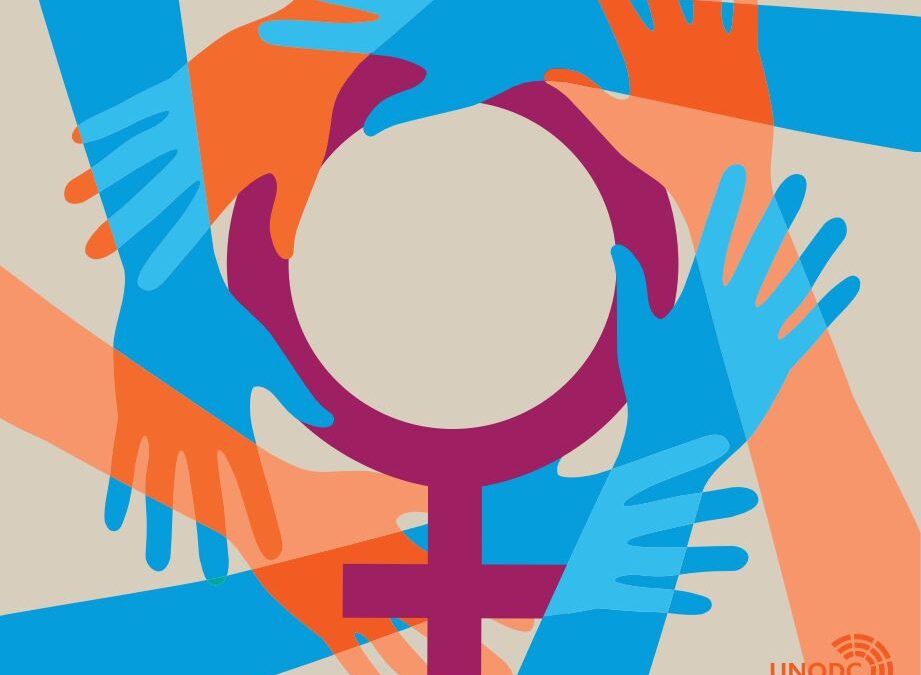
Gender-related killings of women and girls: Improving data to improve responses to femicide/feminicide
With the aim of galvanizing global action against this all-too-pervasive crime, UNODC and UN Women have joined forces to produce this research paper on the global estimates of gender-related killings of women and girls in the private sphere in 2021. This paper features policy recommendations to support comprehensive and multisectoral approaches to prevent and address gender-related killings and other forms of gender-based violence against women and girls.
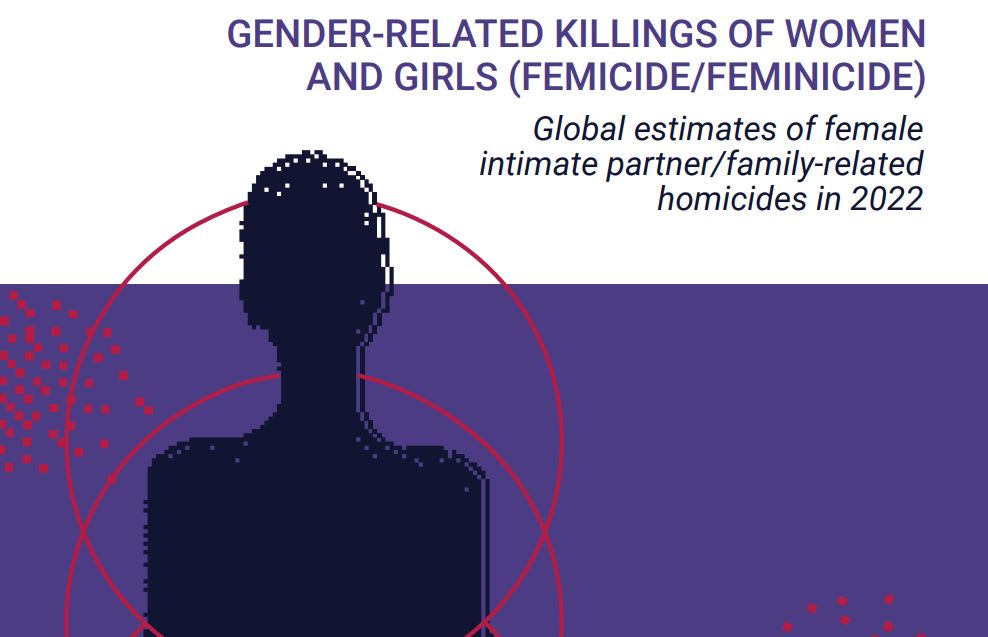
Gender-related Killings of Women and Girls (Femicide/Feminicide): Global estimates of female intimate partner/family-related homicides in 2022
With the aim of galvanizing global action against this crime, the UN Office on Drugs and Crime and UN Women are publishing this second joint publication with global estimates of gender-related killings of women and girls by an intimate partner or family member, with data from 2022. This publication features policy recommendations to prevent gender-related killings, including through risk assessments and protective measures, the establishment of femicide observatories, the criminalization of...
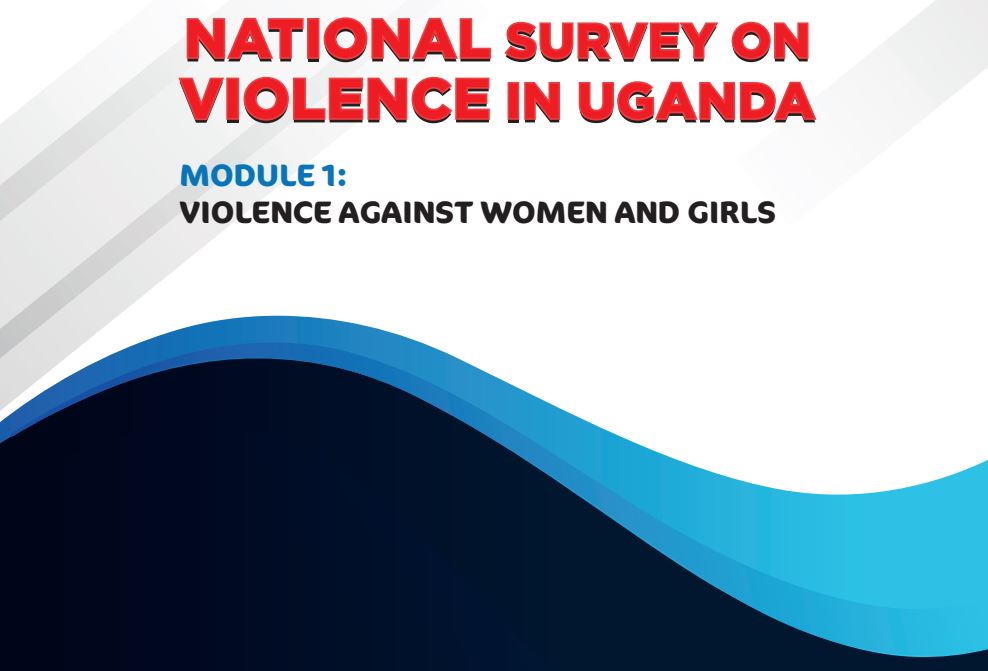
National Survey on Violence in Uganda Module I: Violence Against Women and Girls
The primary objective of the survey on Violence against Women and Girls was to provide up to date estimates of indicators on VAWG. The information collected is intended to assist policy makers and program managers in evaluating and designing programs and strategies for eliminating VAWG in Uganda.

Violence Against Women in the Online Space: Insights from Multi-country Research in the Arab States
To better understand online violence in the Arab States, a subsequent research project explored its prevalence, impact and consequences and the barriers to services and reporting. Three complementary exercises comprised a quantitative web-based survey in eight countries with nearly 12,000 respondents, examining the prevalence, perceptions and implications of online violence; qualitative research to explore experiences of online violence through the lens of civil society organizations, women’s...

Violence Against Women: An EU-wide Survey – Main Results
This report is based on interviews with 42,000 women across the 28 Member States of the European Union (EU). The survey asked women about their experiences of physical, sexual and psychological violence, including incidents of intimate partner violence (‘domestic violence’), and also asked about stalking, sexual harassment, and the role played by new technologies in women’s experiences of abuse. In addition, it asked about their experiences of violence in childhood.

Violence Against Women: An EU-wide Survey – Survey methodology, sample and fieldwork (Technical Report)
This report presents a detailed overview of the research methods used by FRA when collecting survey data on women’s personal experiences of various forms of violence. FRA started to develop the survey through desk research and stakeholder consultations in 2010, followed by a pre-test study in six EU Member States in 2011 to test a draft questionnaire. The full-scale survey in the EU-28 was carried out in 2012.
Patterns of Womenʼs exposure to psychological violence: A global examination of low- and middle-income countries
Under Sustainable Development Goal 5, prevalence of intimate partner violence (IPV) is a globally reportable indicator. There is a lack of consensus on how to measure and report psychological IPV, affecting prevalence estimates and cross-country comparability. We examine similarities and differences in the patterning of women's experiences of psychological abuse in low- and middle-income countries (LMICs) to inform common cut points.
A scoping review of measurement of violence against women and disability
A scoping review with a focus on measurement to assess the forms of measurement and study design utilized to explore the intersection of violence against women with disabilities, and to identify strengths and limitations in current approaches to measuring violence against women with disabilities. This scoping review is designed to inform current debates and discussions regarding how to generate evidence concerning violence against women with disabilities.
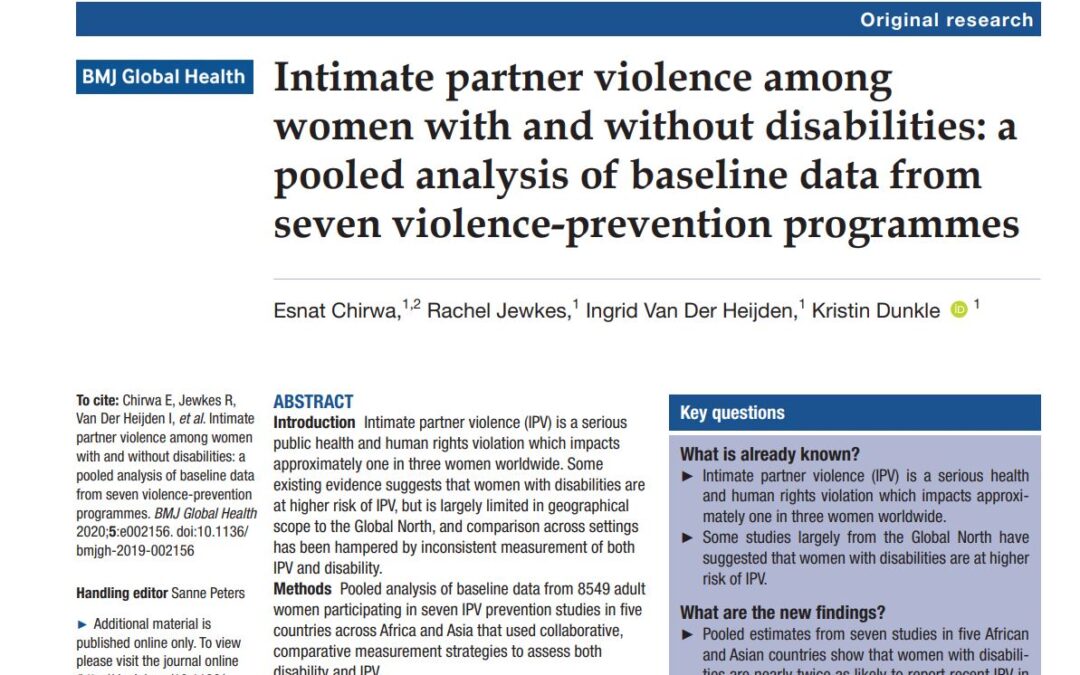
Intimate partner violence among women with and without disabilities: a pooled analysis of baseline data from seven violence-prevention programmes
Pooled analysis of baseline data from 8549 adult women participating in seven IPV prevention studies in five countries across Africa and Asia that used collaborative, comparative measurement strategies to assess both disability and IPV.

Violence Against Women Prevalence Estimates, 2018
This report is based on an analysis of available prevalence data from surveys and studies conducted between 2000 and 2018, obtained through a systematic and comprehensive review of all available data on the prevalence of these two forms of violence against women.

Children and Young People Bereaved by Domestic Homicide
This brief report conveys key findings from the study “Children and young people bereaved by domestic homicide: Understanding home, relationships and identity,“ with a focus on Australia.
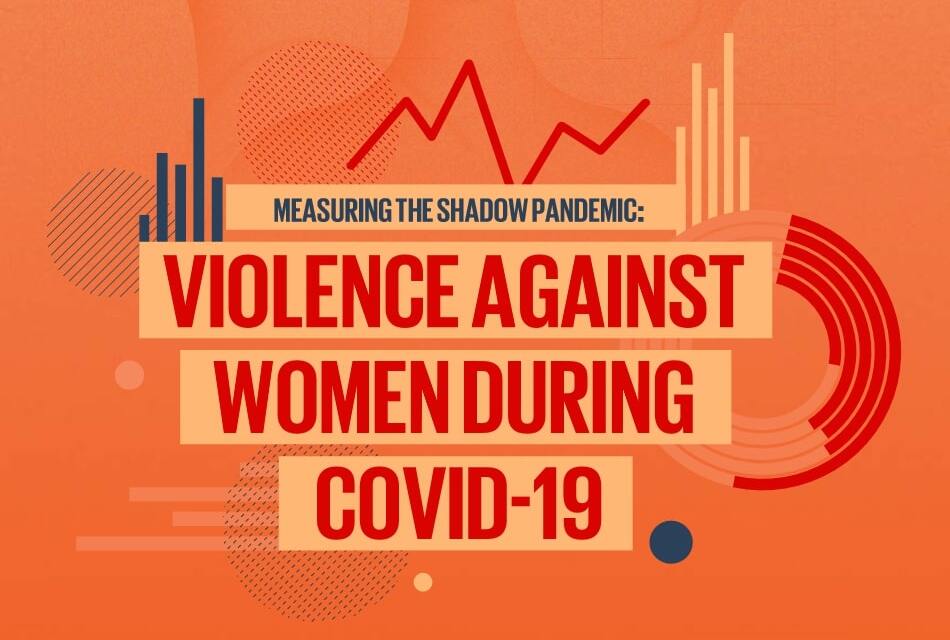
Measuring the shadow pandemic: Violence against women during COVID-19
This publication compiles and analyses the results of Rapid Gender Assessment surveys on the impact of COVID-19 on violence against women (VAW RGAs) in 13 countries.
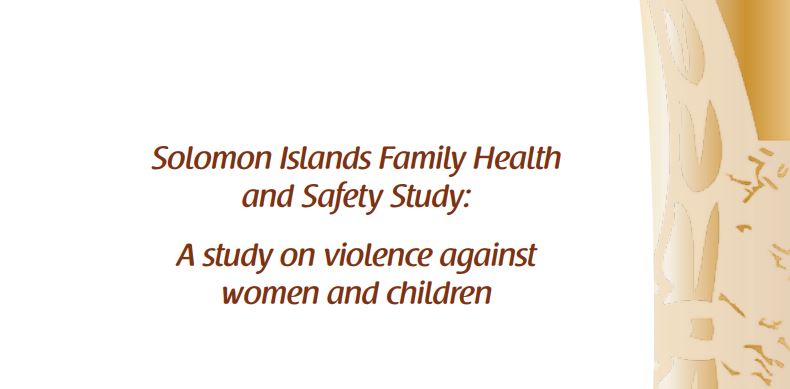
Solomon Islands Family Health and Safety Study
This report of the Solomon Islands Family Health and Safety Study analyzes data from the first nationally representative research on violence against women and children in this country.

Republic of the Marshall Islands National Study on Family Health and Safety
The National Study on Family Health and Safety in the RMI consisted of two separate components: a quantitative study based on the methodology developed for the WHO Multi-Country Study on Women’s Health and Domestic Violence against Women; and a qualitative study based on data collection methods of previous studies.

Belau Family Health and Safety Study National Research Project on Violence Against Women in Palau
The Belau Family Health and Safety Study (FHSS) aimed at obtaining reliable data on the prevalence and types of violence against women (VAW) in Palau. The study also sought to document the associations between partner violence and health issues and other outcomes, as well as to identify risk and protective factors for partner violence.

Federated States of Micronesia Family Health and Safety Study
The FSM Family Health and Safety Study (FHSS) aimed to gauge the prevalence and types of violence against women (VAW) in the FSM. The study also sought to document the associations between partner violence and the wellbeing of the woman and her children, as well as to identify risk and protective factors for partner violence.
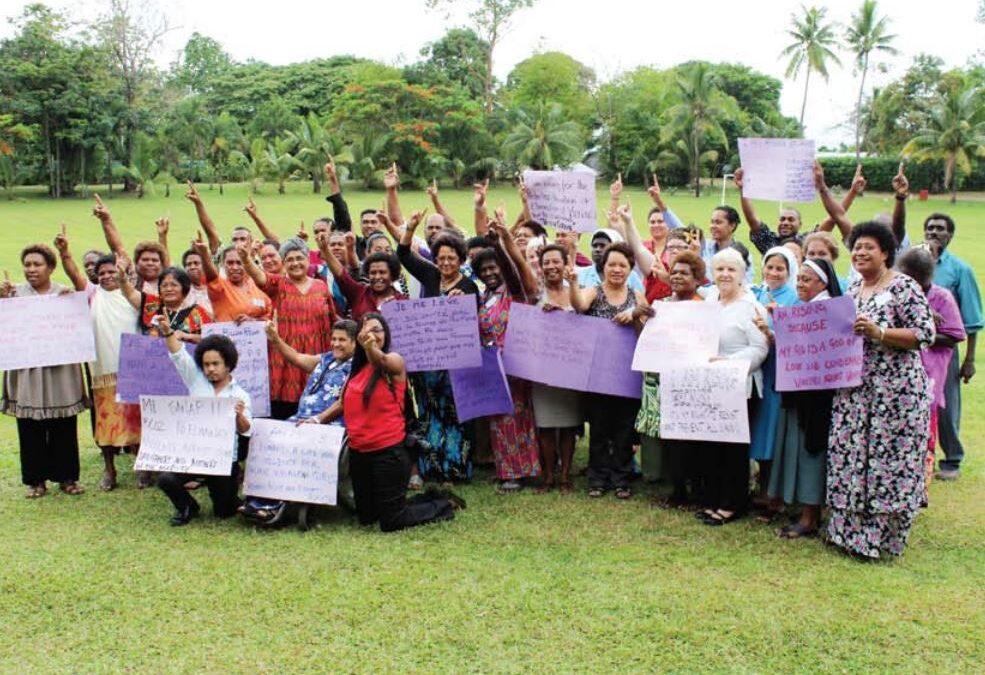
Somebody’s Life, Everybody’s Business! National Research on Women’s Health and Life Experiences in Fiji (2010-2011)
Somebody’s Life, Everybody’s Business is a national research on women’s health and life experiences in Fiji (2010/2011). It is a survey exploring the prevalence, incidence and attitudes to intimate partner violence in Fiji.

Due Diligence and State Responsibility to End Violence Against Women: Standards, Indicators and Good Practices
The Due Diligence and State Responsibility to Eliminate Violence against Women: Standards, Indicators and Good Practices project is a research-advocacy project that is collecting good practices and State actions in the formulation, implementation and enforcement of policies, laws, procedures and processes in relation to violence against women.
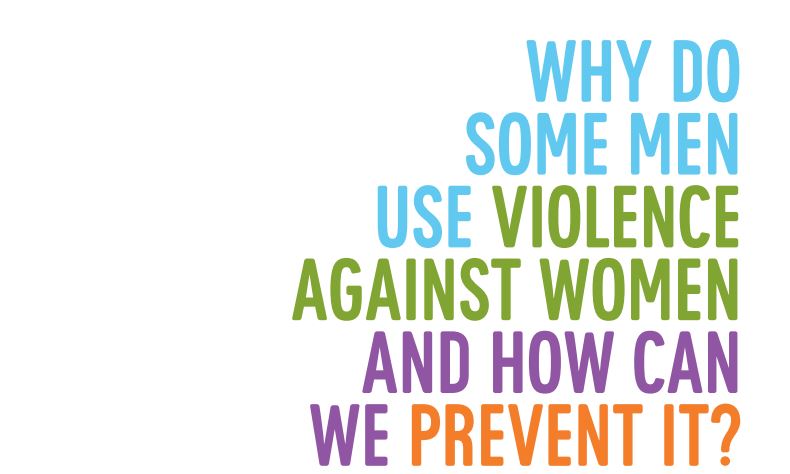
UN Multi Country Study on Men and Violence
A UN study of 10,000 men in Asia and the Pacific found that overall nearly half of those men interviewed reported using physical and/or sexual violence against a female partner, ranging from 26 percent to 80 percent across the sites studied.
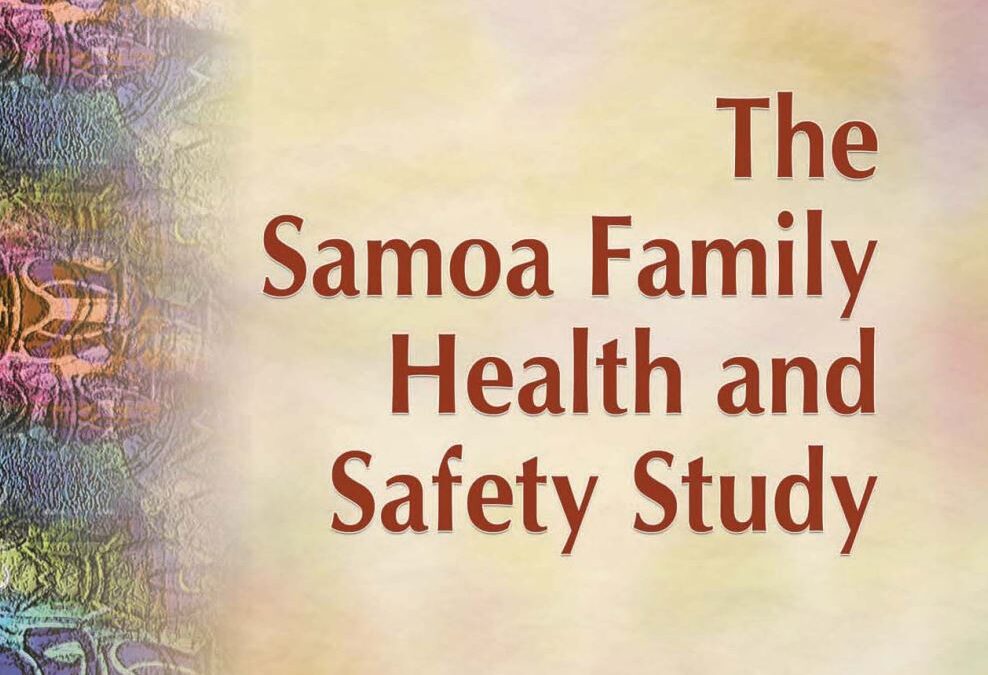
Samoa Family Health and Safety Study
The Samoa Family Health and Safety Study (SFHSS) is a component of the larger Pacific Multi-site Study of the Effects of Violence Against Women on Family Health and Safety, which is a joint research initiative of the Secretariat of the Pacific Community (SPC) and the United Nations Population Fund (UNFPA).
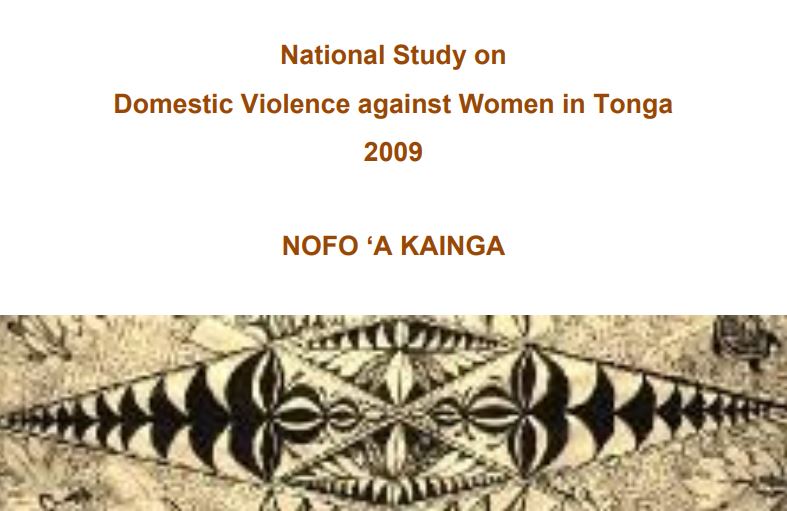
National Study on Domestic Violence on Women in Tonga
The National Study on Domestic Violence against Women in Tonga consisted of two separate components: a quantitative study based on the methodology developed for the WHO Multi-Country Study on Women’s Health and Domestic Violence against Women; and a qualitative study based on Tongan methodology of Talanoa and Nofo. The use of qualitative and quantitative components was to seek results that complemented each other.
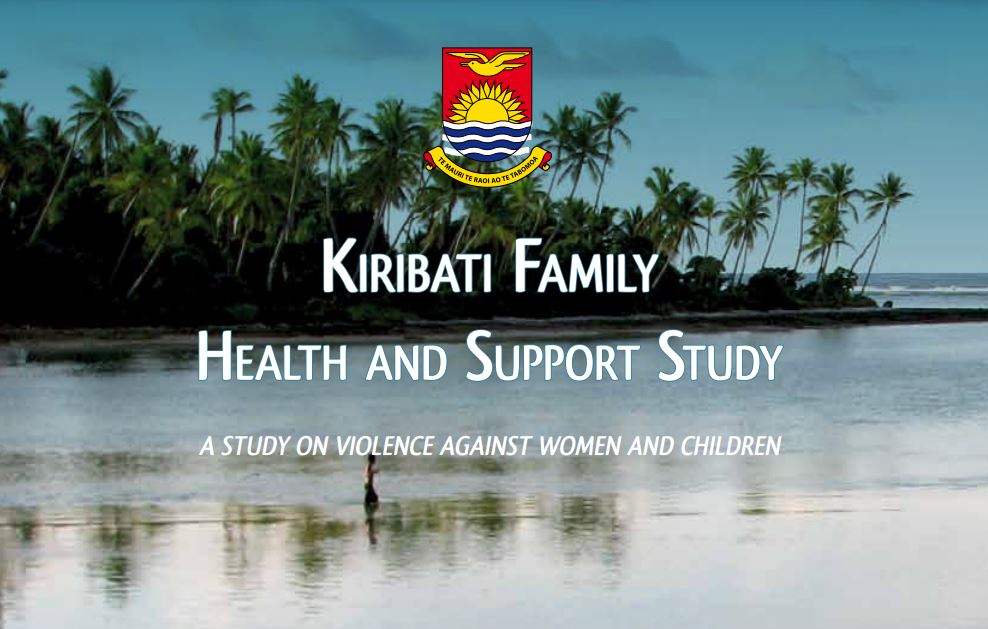
Kiribati Family Health and Support Study
This report of the Kiribati Family Health and Support Study analyses data from the first ever nationally representative child abuse in this country. This study replicates the WHO multi-country study on Women’s Health and Domestic Violence against Women.
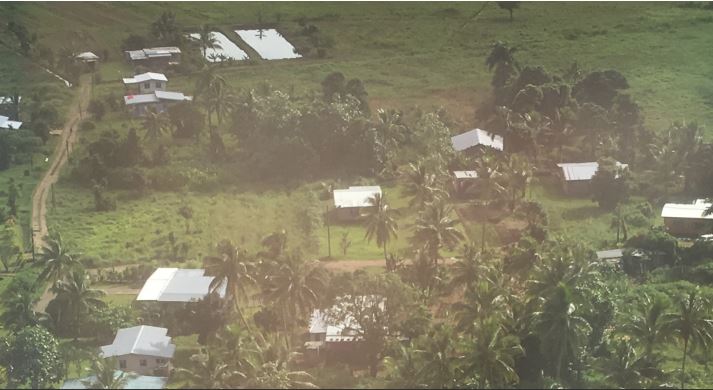
Exploring Multidimensional Poverty in Fiji: Findings from a Study Using the Individual Deprivation Measure
The Individual Deprivation Measure (IDM) is a new, gender sensitive and multidimensional measure of poverty. The measure assesses deprivation at the individual level, in relation to 15 key dimensions of life, making it possible to see who is poor, in what way and to what extent. This study explores what additional insights could be gained by individual-level, gender-sensitive poverty measurement in Fiji

Swimming Against the Tide: Lessons Learned from Field Research on Violence Against Women in the Solomon Islands and Kiribati
Lessons Learned from Field Research on Violence Against Women in the Solomon Islands and Kiribati
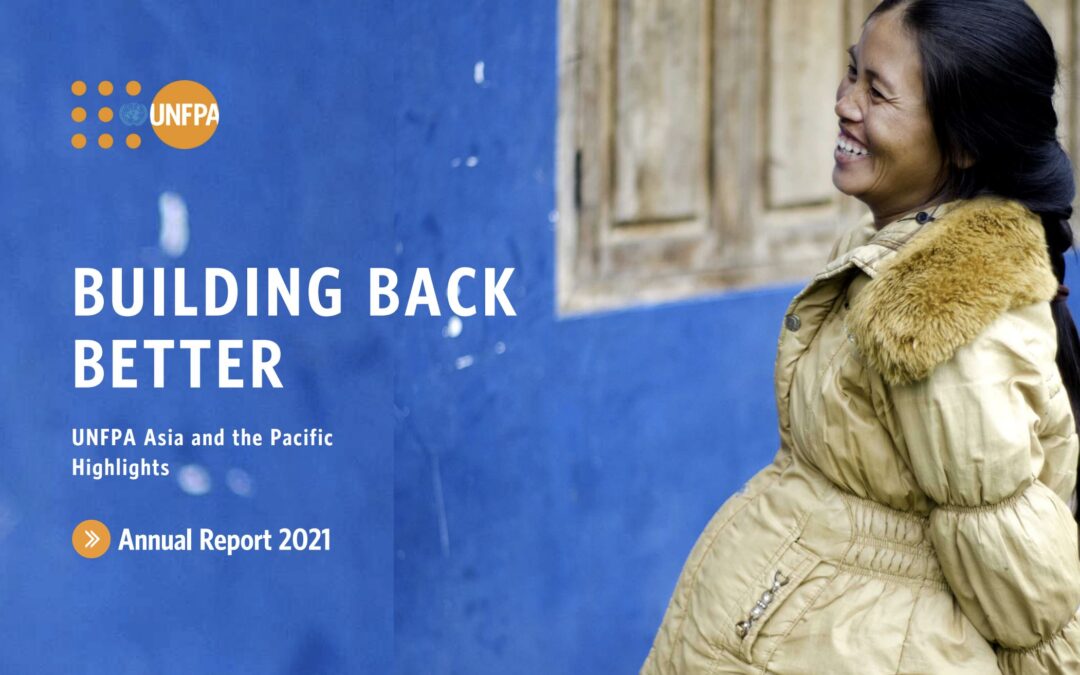
Annual Report 2021: UNFPA Asia and the Pacific
UNFPA across Asia and the Pacific outlining progress towards our transformative results of zero maternal deaths, zero unmet need for family planning, and zero gender-based violence and harmful practices against girls and women.
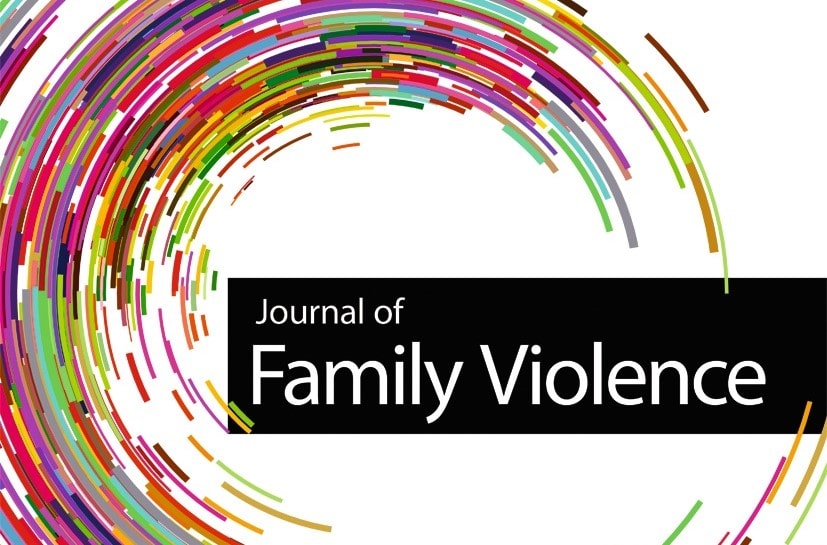
Intersectionality and Invisible Victims: Reflections on Data Challenges and Vicarious Trauma in Femicide, Family and Intimate Partner Homicide Research
This article draws upon the experiences of four researchers in the field of femicide, family and intimate partner homicide - and offers insights into processes, impacts and unintended consequences of fatality reviews and research initiatives
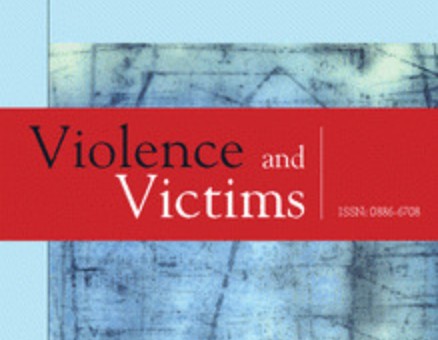
Maternal Childhood Parental Abuse History and Current Intimate Partner Violence: Data From the Pacific Islands Families Study
The aim of the study was to establish the association between the experience of maternal and/or paternal emotional or physical abuse and current severe physical partner violence perpetration or victimization among a cohort of Pacific women.
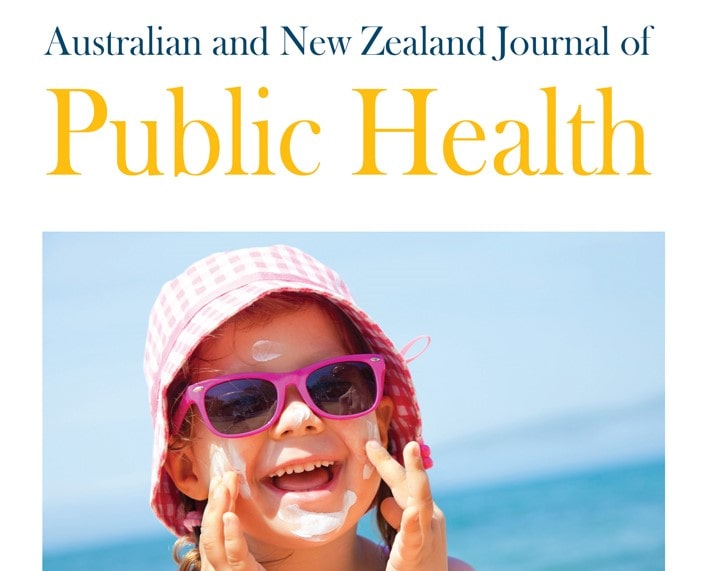
Factors associated with induced abortion over time: secondary data analysis of five waves of the Australian Longitudinal Study on Women’s Health
Objective: A trend analysis of associations with induced abortion. Methods: Secondary analysis of the Australian Longitudinal Study of Women's Health (N=9042). Conclusions: Abortion remains strongly associated with factors affecting women's control over reproductive health such as partner violence and illicit drug use.
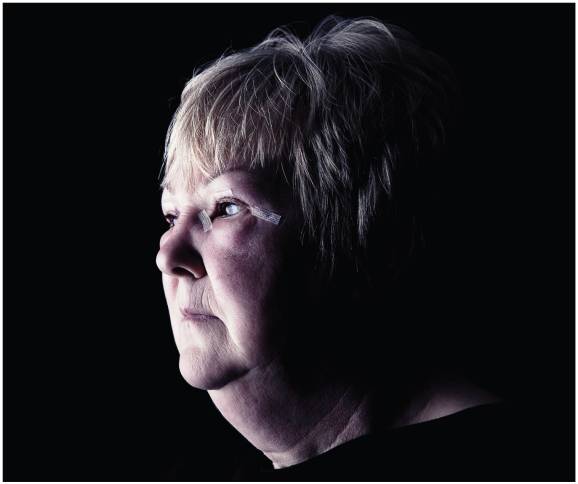
New WHO guidelines on intimate-partner violence
The World Health Organization (WHO) has issued new practice and policy guidelines to help health care practitioners screen, treat and support victims of sexual and partner violence.
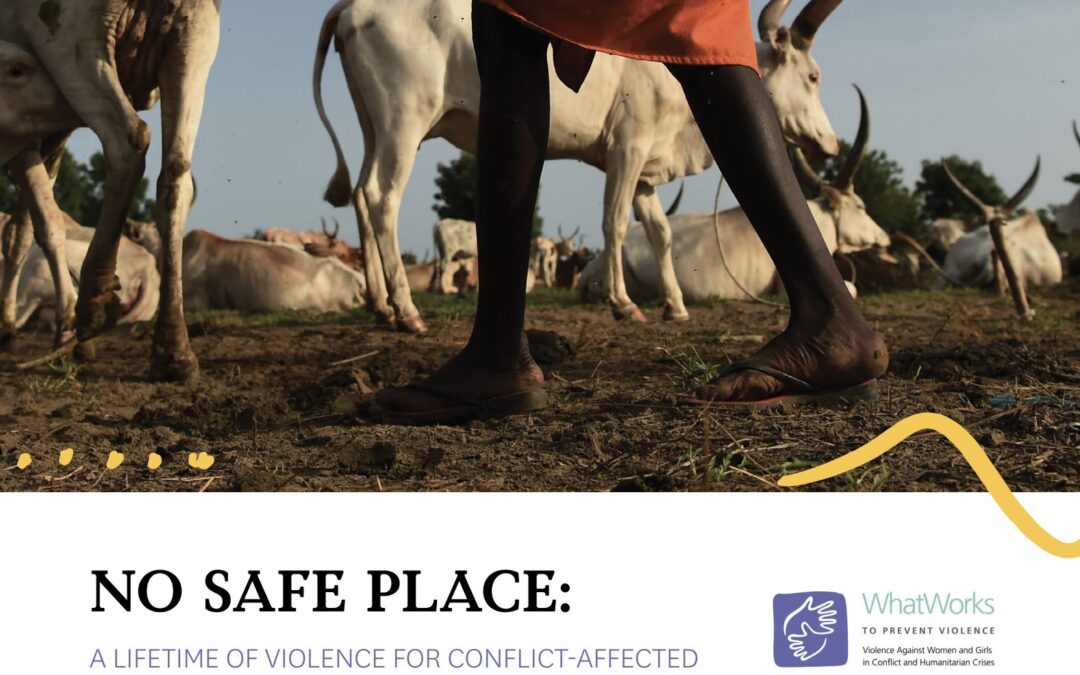
No Safe Place: A Lifetime of Violence for Conflict Affected Women and Girls in South Sudan (Report)
This is the first large-scale research study of violence against women and girls (VAWG) in several areas of South Sudan that have known war and conflict for many years.

Prevalence Rates, Trends and Disparities in Intimate Partner Violence: Power of Data in the IPV Geospatial Dashboard
A dashboard of IPV that features "levels, trends and sociodemographic and geographic, within and across countries, disparities in intimate partner violence in the past 12 months among ever-partnered women."
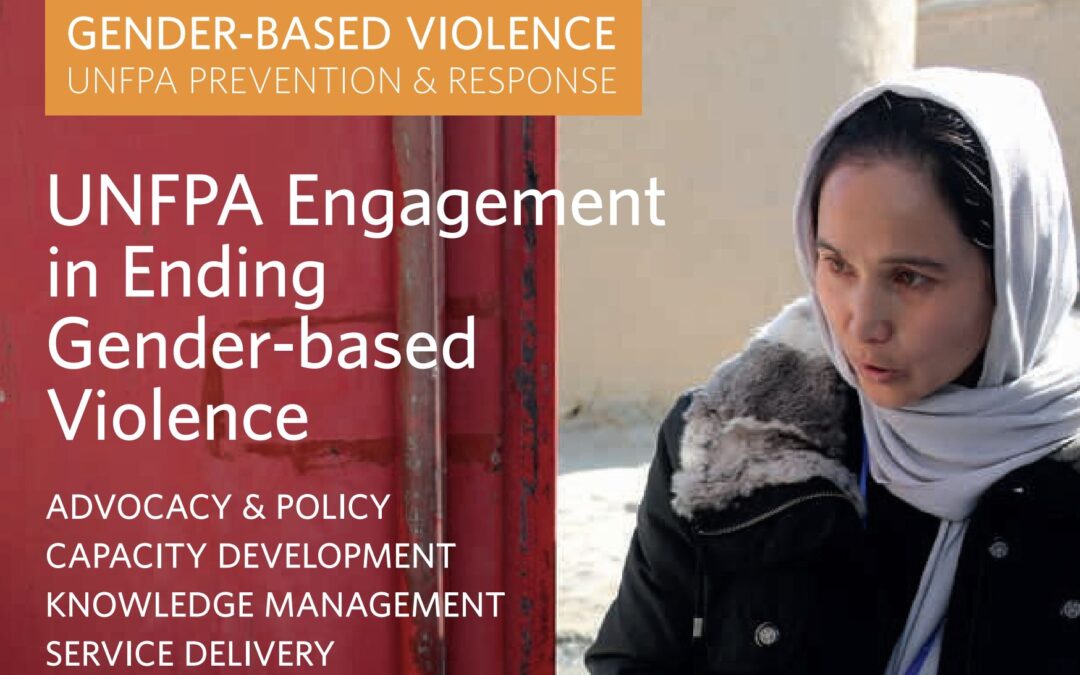
UNFPA Engagement in Ending Gender-based Violence
Page 19-24; discusses collecting data and evidence (with discussions around challenges in gathering data)
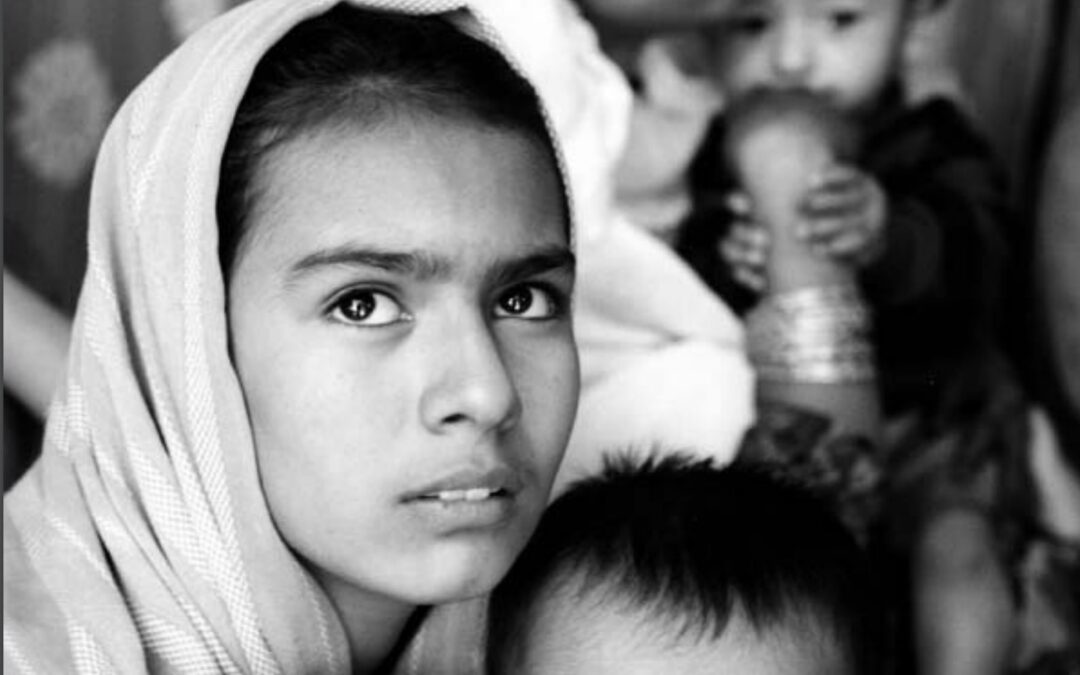
Addressing violence against women: piloting and programming
After the release of the guide: A Practical Approach to Gender-Based Violence: A Programme Guide for Health Care Providers & Managers in 10 countries, presentations and discussions were conducted to evaluate the guide's release (recommendations are presented on page 12) with experts commenting on the challenges of measurement (pg 17)
